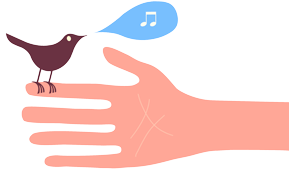 Everyone (including me) always tells depressed people to “get support.” The reality is that when people are depressed, talking to other people about it is sometimes the last thing they want to do. So when someone says, “Get some support!” the depressed person might be thinking, “Support, right. Like that will help. What I need is to go back to bed and for everyone to just leave me alone.”
Everyone (including me) always tells depressed people to “get support.” The reality is that when people are depressed, talking to other people about it is sometimes the last thing they want to do. So when someone says, “Get some support!” the depressed person might be thinking, “Support, right. Like that will help. What I need is to go back to bed and for everyone to just leave me alone.”
In my experience, the kind of support that a depressed person often needs is not the kind that people offer. When you’re depressed, talking to someone about how bad you feel can be helpful but can also make you feel worse if that’s all you are doing. And since depressed people have often thought way too much about what is wrong with themselves and their lives, talking about it with someone seems like it won’t be helpful.
But fear not! There are some kinds of practical support that can be helpful for people who are depressed.1 Before you try any of the ideas below, make sure you get the depressed person’s permission. Otherwise, it will feel like nagging and won’t be supportive. If you are the depressed person, consider asking people to support you in some of the following ways:
- Help doing household tasks. A support person can go to the depressed person’s house and do his laundry or his dishes or clean his bathroom. Living in a cleaner home helps one’s mood all by itself.
- Invited pestering. (I just made up that term and I like it.) At the depressed person’s invitation or with the depressed person’s permission, a support person can pester her to do things she wants to do. For example, if the depressed person says she wants to exercise once this week, the support person can check in every day to see whether the depressed person has exercised yet. This should be done in a kind of cheerleading way, not a shaming way. The support person can offer to drive the depressed person to the gym or to exercise with her or whatever would be helpful. Note: if the depressed person does not consent to this pestering then it probably won’t help and will just make her/him want to isolate more.
- Fun time. When you’re depressed just having some time when you’re laughing and enjoying yourself can be helpful. But also, when you’re depressed it’s very difficult to initiate fun time with other people. A support person can invite the depressed person to do something fun together. Activities that get the depressed person out of the house are helpful but if that isn’t possible, even bringing over a funny movie and some popcorn can help. Note: If alcohol or drug use is usually what seems fun to you, be aware that when people are depressed alcohol and drug use can make them feel much worse overall.
- Wake-up calls. Some depressed people have a hard time getting out of bed in the morning and end up sleeping through much of their days. With the depressed person’s permission, a support person can call in the morning to give an encouraging wake-up call at an agreed upon time. Tip for the support person: don’t be too perky or the depressed person may just hate you.
- Help accessing other support. Therapy (and yoga and acupuncture and meditation and medication and many other things) can be helpful for people who are depressed. The problem is that when you are feeling really depressed it is hard to get yourself to do anything, including finding a therapist (or other kind of support). A support person can help with that task. Anyone can go on-line and search for a psychotherapist in the area. Anyone can find out whether the therapist accepts the depressed person’s insurance. Anyone can find out whether the therapist has any openings or whether there is a waiting list. The depressed person will ultimately need to talk with the therapist but a support person can do a lot of the initial legwork. Again, you need to have the depressed person’s permission to help in this way. Otherwise, it will just feel controlling and intrusive.
In summary, while listening and giving emotional support can be helpful for depressed people, it’s usually not enough. If you are depressed and sick of talking about it, ask someone to help you out with what you really need to do. It can be embarrassing to ask for help like this but if you can just go ahead and ask anyhow it might help you feel a little better. Or if you are someone who wants to support a depressed person, consider offering some specific, practical ways you can help.
- These suggestions are not intended for depressed people who are feeling suicidal. If a depressed person is expressing feeling suicidal, s/he can call 911 or go to a hospital. A support person can always call 911 also if there is concern about suicidality. [↩]
